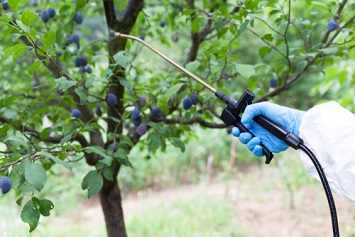The EPA’s Special Local Needs (SLN) program is at risk of not achieving its program goals, according to a report issued by the EPA’s Office of Inspector General (OIG) in February 2021.
Section 24(c) of the Federal Insecticide, Fungicide, and Rodenticide Act (FIFRA) “authorizes the Department of Pesticide Regulation to register an additional use of a federally registered pesticide product or a new end use product to meet a special local need if certain conditions exist,” according to the EPA. The Agency is required to review “SLN registrations within ninety (90) days and may require additional use directions or restrictions.” The Office of Pesticide Programs (OPP) within the EPA’s Office of Chemical Safety and Pollution Prevention (OCSPP) oversees the SLN program.
The OIG’s evaluation concludes that the program is lacking the following components that would improve its effectiveness in meeting the EPA’s goals of risk reductions and pollution prevention:
- The SLN program does not have a comprehensive system of management controls.
- The OPP has not identified program objectives, developed performance measures, or implemented data collection.
- The OPP does not have a uniform review process. “An SLN registration is effective as soon as the state approves the application unless the EPA disapproves it,” according to the OIG evaluation. “Without a consistent and effective application review process, human health and the environment may be at risk.”
- The OPP does not provide adequate state guidance.
- The OPP lacks an SLN database for public and stakeholder use.
- The OPP does not effectively communicate with state partners.
Recommendations and Responses
The OIG recommends corrective actions for the OCSPP, with proposed target dates for completion:
- “Develop program objectives and measures and implement data-collection processes to determine the risk-reduction and pollution-prevention outcomes of the Special Local Needs program.”
The OCSPP will complete a data review to “assess how the Agency’s review process is performing on the requirement to either disapprove or acknowledge a 24(c) action within 90 days.” The Agency will collect data for 12 months, evaluate the data, and develop a performance metric to assess the Agency’s performance in meeting the 90-day review requirement. The target completion date is July 1, 2022. - Develop and implement standard operating procedures that allow SLN applications to be reviewed consistently.
The OCSPP will create and implement “a programmatic standard operating procedures (SOP) document to ensure consistent review of special local need applications.” The target completion date is December 31, 2021. - Determine whether the OPP will adopt the draft American Association of Pesticide Control Officials (AAOPC) guidance or develop detailed guidance for states that specifies what information should be submitted in each SLN application.
The OCSPP will work with the AAOPC to determine if additional materials or guidance is needed. The target completion date is December 31, 2021. - Develop and make available a public SLN database, including registration date, duration, and individual state SLN labels for each SLN registration.
The OCSPP will enhance the Pesticide Product Label System (PPLS) website to add the ability for the public to view submitted SLN labels, with a target completion date of December 31, 2021. - Regularly inform states of the availability of pre-submission consultative services to develop effective SLN application packages.
“OCSPP will continue to support the States and commits to providing regular and useful information to the States to assist with the development of comprehensive special local need submission packages, including pre-submission consultative services for Special Local Need actions.” The office will provide information on pre-submission consultation services to all FIFRA state partners by June 30, 2021.
The OCSPP response resolves the OIG’s recommendations pending these corrective actions.

